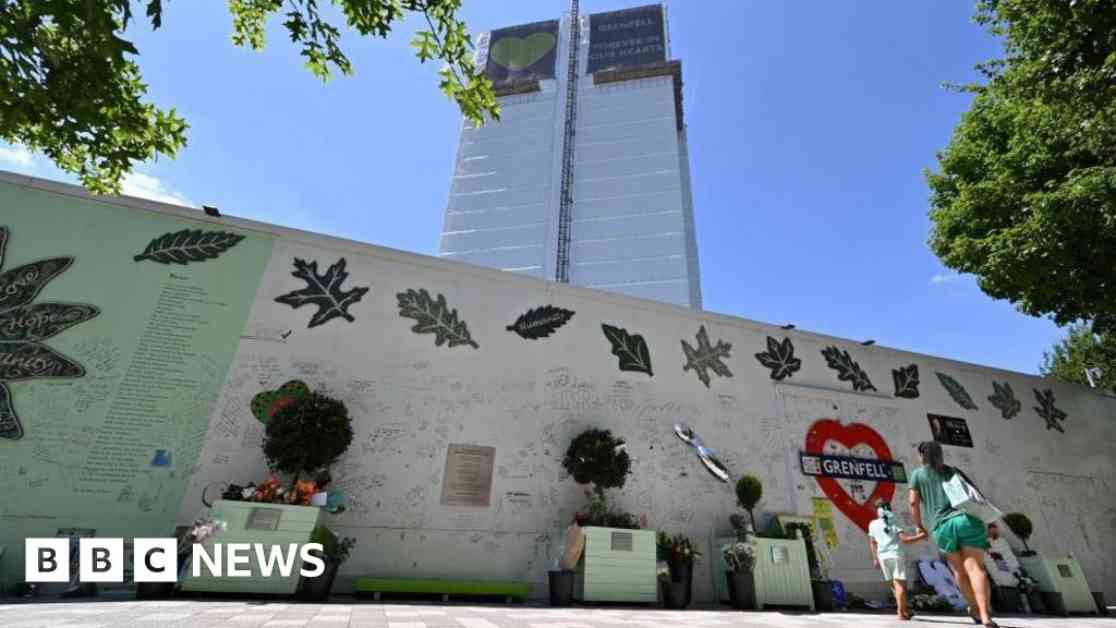Bereaved Families’ Outrage Over Grenfell Tower Dismantling Sparks Controversy
The decision to dismantle Grenfell Tower has ignited a firestorm of emotions among some families and survivors who are still grappling with the aftermath of the tragic fire that claimed the lives of 72 individuals in 2017. The announcement made by Deputy Prime Minister Angela Rayner during a recent meeting has left many feeling disregarded and unheard, further exacerbating the pain and trauma that still lingers in the hearts of those affected.
Disagreement and Dissent
Grenfell United, an organization representing bereaved families and survivors, expressed their vehement opposition to the dismantling of the tower, highlighting the fact that no one at the meeting supported the decision. The lack of consultation and consideration for the voices of those most deeply impacted by the tragedy has left many feeling disillusioned and betrayed by the authorities.
At the heart of the issue lies a fundamental clash of perspectives regarding the future of the 24-storey tower. While some advocate for its preservation as a somber monument to the lives lost, others argue for its replacement with a new memorial that can serve as a symbol of healing and remembrance. The impending formal announcement by the government is expected to shed more light on the course of action that will be taken.
Voices of Grief and Resilience
Kimia Zabihyan, a representative from Grenfell Next of Kin, shared her experience of attending the meeting with Deputy Prime Minister Rayner. Despite the charged atmosphere, Zabihyan acknowledged Rayner’s earnest intentions and the weight of the decision she had to make. The decision to dismantle the tower was reportedly based on the recommendations of engineers who had assessed its structural integrity in the aftermath of the devastating fire.
While the rationale behind the decision is clear, the emotional toll it has taken on the bereaved families and survivors is undeniable. Zabihyan recounted a poignant moment during the meeting when one individual expressed the deeply personal connection they had to the tower, as it held the remains of their loved one. The symbolic significance of the building as a final resting place for some has added a layer of complexity to the decision-making process.
Community Perspectives and Controversy
Mushtaq Lasharie, chairman of the Lancaster West Estate Residents Association, shared insights into the sentiments of the local community regarding the dismantling of the tower. He emphasized the need for closure after years of uncertainty and trauma, noting that the decision had garnered significant support from residents who viewed the tower as a painful reminder of the tragedy.
Emma Dent Coad, a former MP for Kensington and Chelsea and now an independent councilor, echoed the sentiments of many affected by the Grenfell fire. She highlighted the profound sense of loss and devastation felt by the bereaved families and survivors, many of whom are grappling with conflicting emotions about the fate of the tower. The impending deconstruction of the tower is expected to commence after the 8th anniversary of the fire, with completion estimated to take two years.
Towards Healing and Remembrance
As plans for the dismantling of Grenfell Tower unfold, the focus has also shifted towards creating a meaningful memorial that honors the memory of the lives lost in the tragedy. The Grenfell Tower Memorial Commission has outlined a vision for a “sacred space” that will serve as a peaceful sanctuary for reflection and remembrance. The proposed design includes a garden, monument, and dedicated areas for private expressions of grief and mourning for the families affected.
Looking ahead, a shortlist of potential design teams has been announced, with a winning team expected to be selected in the coming months. The creation of a lasting memorial that captures the spirit of resilience and unity in the face of adversity remains a poignant reminder of the enduring impact of the Grenfell tragedy on the community and the nation as a whole.













